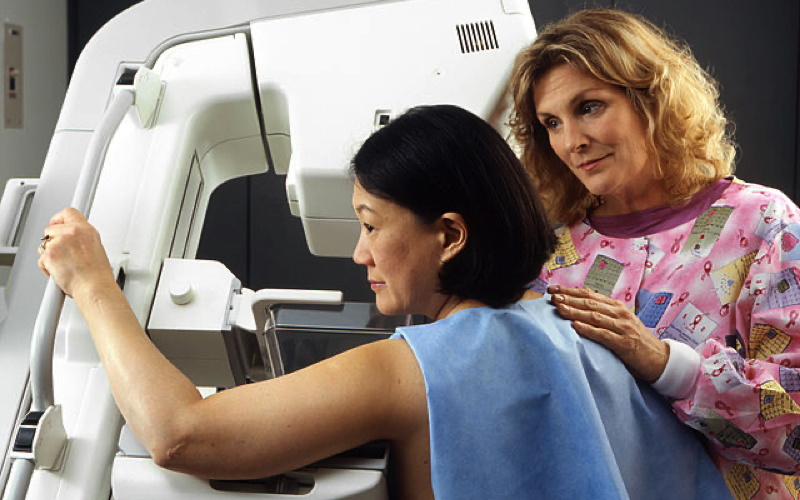The percentage of eligible women receiving breast screenings has gone down, according to NHS data.
The percentage of women eligible and screened in the last three years has dropped from 77% in 2021 to 65.3% in 2022.
The largest drop was during the pandemic with coverage dropping from 74.2% in 2020 to 64.2% in 2021.
This comes as the NHS urged women to take up breast screening invites, earlier this year.
The NHS general breast cancer screening programme is open to women, trans-men, trans-women, and non-binary people aged 50-71, however this data only covers women’s coverage.
An automatic invite will be sent between the ages of 50-53 and then a following invite will be sent every three years until a person turns 71.
Breast screening uses a mammogram, which is an x-ray that produces an image of the breast tissue.
The test is conducted by a mammographer, who will be a woman, and can help detect cancers that are too small to see or feel through personal examination.
The data show that number of women attending screening has remained between four and five million each year since 2021, however the number of women eligible has increased.
The number of women eligible for screening has gone up by nearly one million between 2012-2022, and the number of women attending screening does not reflect this rise in eligibility.
Dr Eddie Gibson, consultant radiologist, said: “The cancer screening programme was paused for several months from spring to autumn of 2020 and that pause has obviously affected figures for that year.
“Attendance figures were good before 2020. Over 2.5 million women attended screening during that particular year.
“Personal examination is really important, and it is important for women to get used to how their own breast tissue feels and get used to examining themselves regularly.
“If they notice any change in that tissue, they should immediately get in touch with their GP to seek referral onto a breast clinic.
“On top of that, a mammogram is a very good test at picking up breast cancer early.
“It looks for changes in the breast tissue. There are lots of different features that we look for in the image in terms of bit of calcification or if some tissue looks more dense than somewhere else in the breast.”
Thalie Martini, CEO of Breast Cancer UK emphasised the importance of reducing breast cancer through detection.
Martini said: “We have been concerned that disruption to NHS services would impact people being able to get an early diagnosis. This is crucial in helping people make a full recovery.
“Studies show that at least 30% of those cases could be prevented through small changes in our everyday life.
“We believe there has never been a more urgent need to Put Prevention First supporting people to take action now to prevent breast cancer from occurring in the first place.
“People can take action today, including taking steps to eat well, be physically active, maintain a healthy weight, reduce alcohol intake and avoid harmful chemicals in everyday products.”
Dr Gibson added: “I think it is really important to promote screening. There are lots of leaflets that the government puts together through the breast cancer screening programme.
“It is also important for women to be fully informed about breast cancer screening so they can make a personal decision whether it is right for them, we cannot force women to come to screening.”
Despite the overall fall in coverage, especially post Covid, Dr Gibson assured that the quality of care and service was still high.
He said: “The women who did attend for screening still got the high level high quality of care in terms of the speed of the diagnostic testing, in terms of getting their treatment their surgery if necessary and their outcomes were just as good as they were before Covid.
“That would suggest that the NHS was on its knees frankly with Covid, but we still managed to do a good job for the women that came to screening.”
London was the region of England with the lowest coverage and uptake of invitations for screening.
Flora, 59 from London shared her positive experience with breast screening.
She said: “I went for my first mammogram at 50 years old, after getting my letter from the NHS.
“I make sure to go whenever I am invited, and I find the process quick and easy as the screening is at my local hospital.
“I have friends who have had breast cancer, but it was caught early, and they were able to receive treatment and get better. Therefore, going for mammograms is very important to me.”
Featured image credit: Rhoda Baer via Wikimedia Commons





